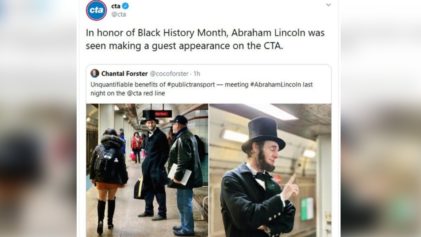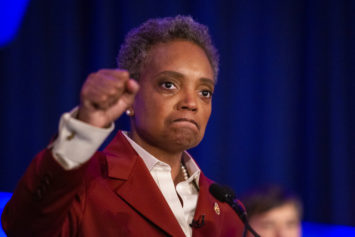Chicago reached a dubious distinction on Monday when the city’s soaring murder rate officially eclipsed last year’s total with two more months still to go in 2012.
A 68-year-old man who had recently put up a fence outside his home because he was tired of drug dealers using his property to conduct business was found shot to death in his home late Sunday night, while a fatal shooting claimed the life of another man in his mid-30s just hours later to put the city’s murder toll at 436 this year. Chicago Police are investigating whether the first murder was retaliation for erecting the fence.
The deaths capped a murderous weekend of violence where six people were killed and another 14 wounded by gunfire and following reports the city’s crime had slowed down after brutal first quarter of the year that saw a 60 percent rise in the homicide rate, the Chicago Tribune reported.
The city is statistically more lethal to Americans than war-torn Afghanistan, where 271 Americans have died this year.
The issue of Chicago’s homicide rate was profiled in a new ABC “Nightline” special, “Hidden in America: Don’t Shoot, I Want To Grow Up” that was hosted by Diane Sawyer and featured rapper Keef.
Sawyer and her colleagues teamed up with the anti-violence group CeaseFire (also known as Cure Violence) to invite 38 gang members to sit down and discuss the escalating wars that have been claiming innocent lives. Almost unanimously, participants said that it would take nothing short of a miracle to control the violence.
Superintendent Garry McCarthy has repeatedly said that his tactics to reduce gang violence have helped curb the murder rate and pushed for tighter state gun laws last week during City Council budget hearings.
The praise McCarthy had earned for his handling of the NATO summit this spring seemed like a fading memory as aldermen pressed him for solutions to the crime and violence scattered across their wards.
Ald. Brendan Reilly (42nd) floated a proposal for businesses in his ward, which includes the Michigan Avenue downtown shopping district, to hire off-duty cops to conduct extra patrols of the area. North Michigan Avenue has been the scene of a series of muggings and beatings in mob attacks the past two summers.
Mayor Rahm Emanuel and McCarthy have touted the lower crime numbers after a spike this summer, but not all aldermen are feeling the reprieve in their neighborhoods.
“When you get on TV and say in the month of July and August, shootings decreased or whatever you say, we don’t feel that. Not at all,” said Ald. Latasha Thomas (17th), according to the Chicago Sun-Times. Thomas’ ward spans some of the city’s poorest and most violent neighborhoods, including Englewood, West Englewood, and Chatham.
Last spring, Emanuel shifted 500 officers previously at desk jobs to high-crime areas in the city. As a continuation of his plan to add more police officers, the mayor wants to boost the police force by 500 by the end of 2013, though aldermen say it’s still not enough. The city council wants an additional 500 officers on the street, calling the rate currently considered full-strength “not sufficient,” according to CBS Chicago.
Defending the mayor’s plan, McCarthy said tighter gun tracking – not necessarily more police – was the answer.
“There’s no studies that show that more cops means less murders,” McCarthy said, according to CBS Chicago. It’s what those officers are doing.”


